2,167 children still need to be evacuated from Donetsk region – MIA




A visibly emotional Kim Jong-un was seen consoling families of North Korean soldiers killed during the Ukraine war.

© KCNA
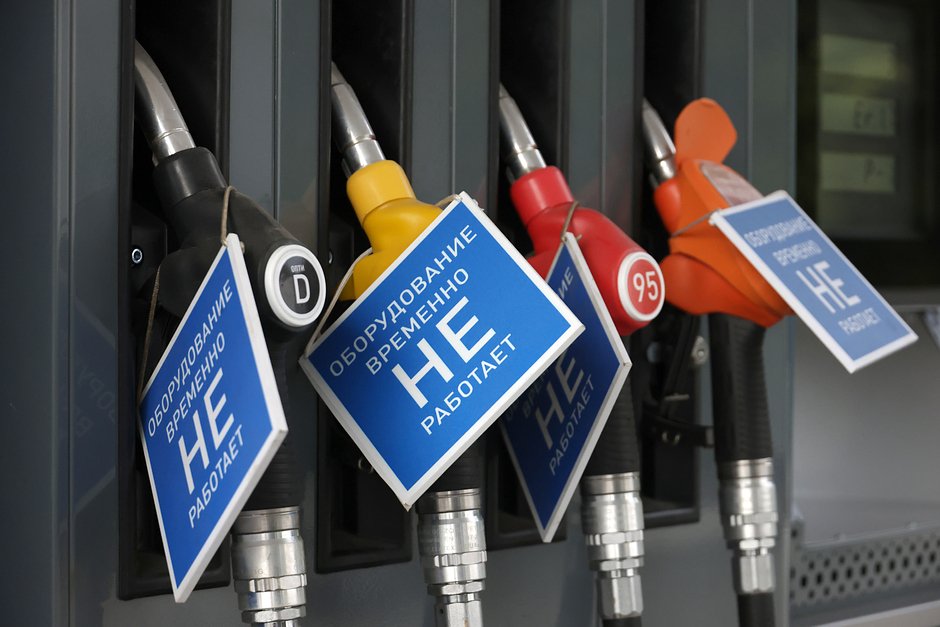

Ukrainian intelligence reports fuel shortages now reach Russia’s Pacific territories, forcing Moscow to seek emergency supplies from Belarus.
The reported restrictions from Crimea to the Pacific islands demonstrate how Ukraine’s systematic refinery strikes are creating supply disruptions far from front lines, potentially affecting both military logistics and civilian mobility.
Russia has imposed strict 10-liter fuel rationing on civilians in the remote Kuril Islands while urgently purchasing petroleum from Belarus to address spreading domestic shortages, Ukraine’s Foreign Intelligence Service reported on 21 August.
Since January, oil refineries have been the target of 42% of Ukrainian long-range strikes, making them the single most-hit category. Russian media, including The Moscow Times, have separately confirmed gasoline prices reaching record highs after refinery attacks.
According to the Ukrainian intelligence report, Russian companies’ interest in Belarusian petroleum products “rose sharply” in the second half of August, citing the Belarusian state company Belneftekhim. The assessment claims Belarusian refineries are rapidly increasing supplies to meet Russian demand.
“Russian companies are urgently buying fuel from Belarus,” the Foreign Intelligence Service stated, though the scale and verification of these purchases could not be independently confirmed.
According to the intelligence assessment, the fuel crisis has spread from occupied Crimea, eastward through Russia’s Far Eastern regions of Transbaikalia and Primorye, ultimately reaching the remote Kuril Islands near Japan.
Russian media have documented specific price increases from the strikes. The Moscow Times reported that wholesale gasoline prices reached historic highs after Ukrainian strikes on major refineries, with AI-92 gasoline jumping 38% and AI-95 nearly 49% since the start of 2025.
Confirmed impacts from open sources:
Recent verified strikes include multiple hits on the Ryazan refinery, which produces aviation fuel for Russian military aircraft, and the Volgograd facility, which processes over 14 million tons annually.
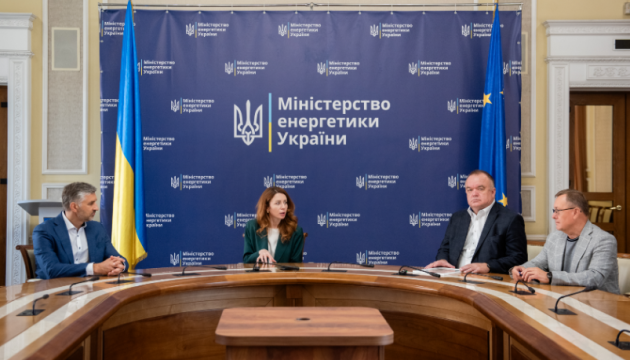

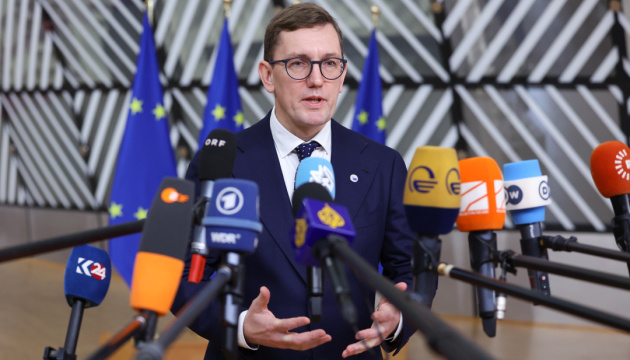

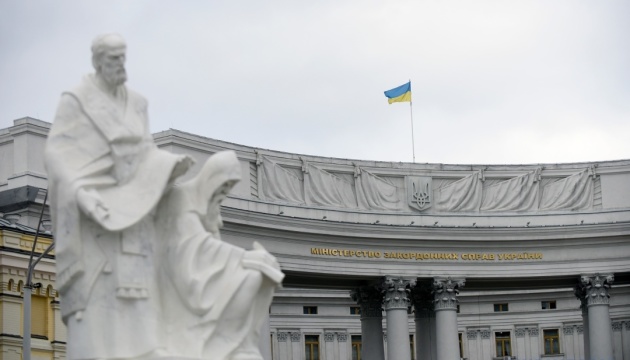

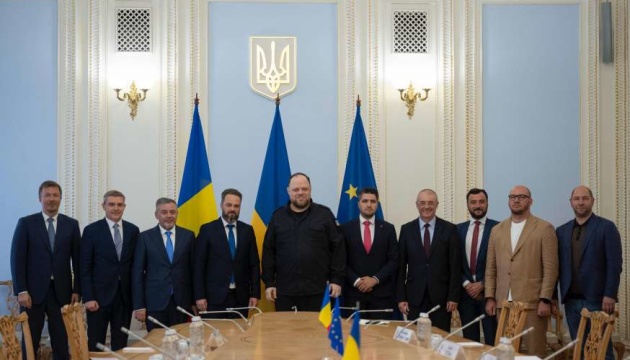

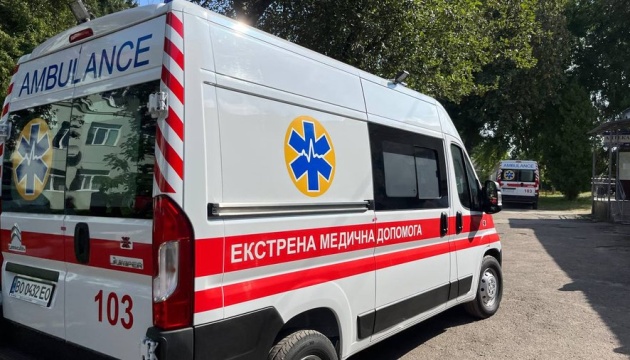

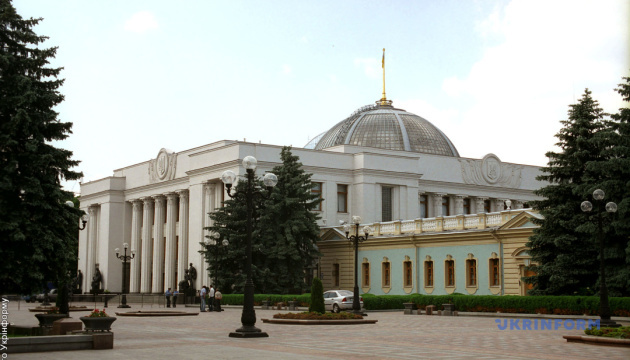



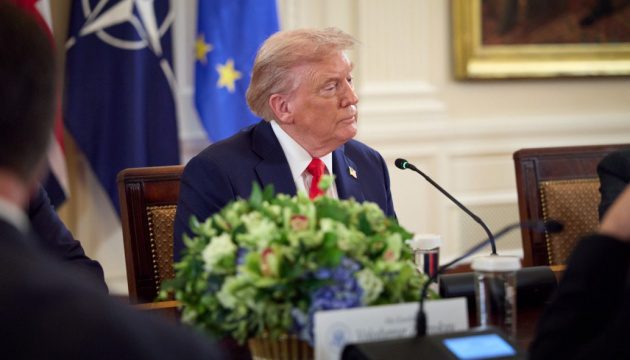


Claim comes as Ukraine war rages on despite Trump peacemaking attempts

© AFP via Getty Images




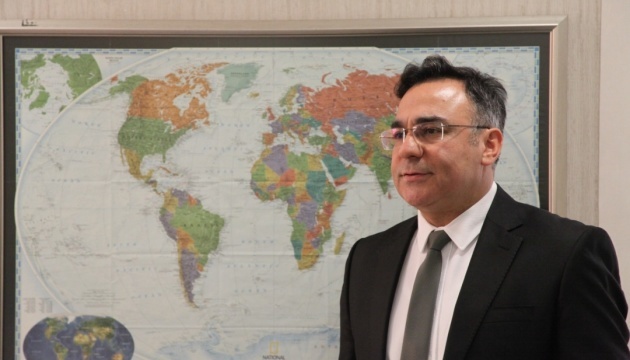


Editorial: With the White House all but abandoning its efforts to bring Vladimir Putin to heel, the people of Ukraine at least survive to fight another day – strengthened by the certainty that a bad peace is worse than no peace at all

© AP
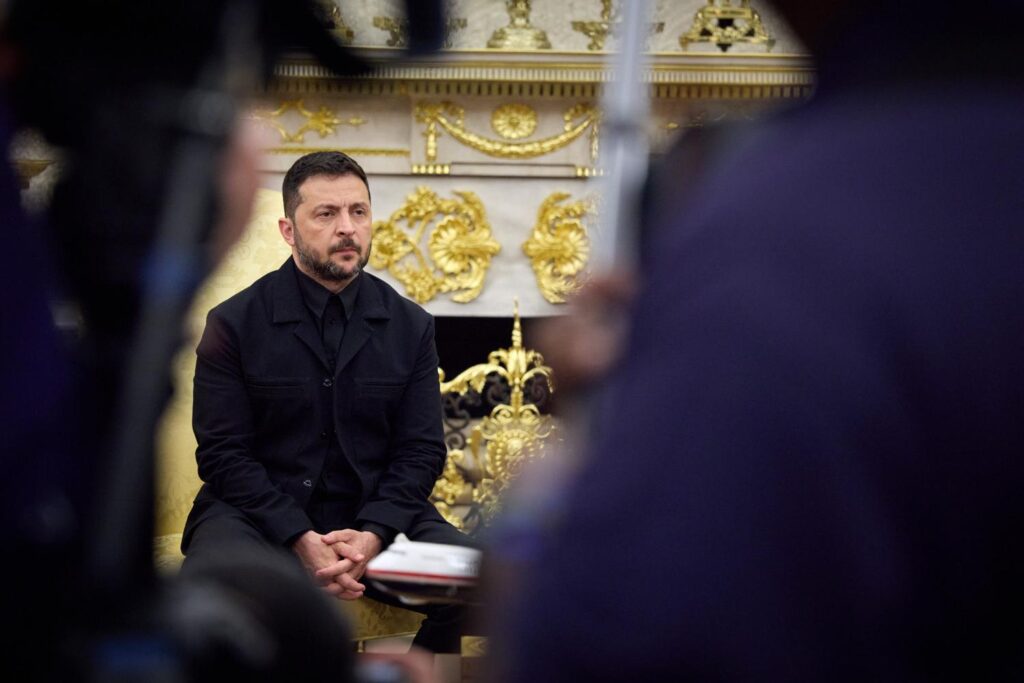

Ukrainian President Volodymyr Zelenskyy has categorically dismissed the idea of involving China as a potential security guarantor for Ukraine. Liga reports that he believes a state that effectively helps Russia wage war cannot take on obligations to protect Kyiv.
“First of all, China did not help us stop this war from the very beginning,” Zelenskyy stressed, recalling that Beijing took no action in 2014 when Russia occupied Crimea.
The Ukrainian president also added that China supplied drones to Russia, which Moscow has used against Ukraine.
“We do not need guarantors who have not helped Ukraine, and who did not help when it really mattered after 24 February,” Zelenskyy said.
He emphasized that security guarantees can only be provided by countries willing to offer real assistance—military, economic, and political.
China is currently Russia’s largest trading partner. Up to 90% of components for Russian high-tech weapons are supplied by China. This weaponry has already claimed the lives of over 13,800 Ukrainian civilians.
Official data show that trade between Moscow and Beijing reached $125.8 billion from January to July 2025 alone.
China has already responded through Foreign Ministry spokesperson Mao Ning, who referred to the war against Ukraine as a “crisis” while avoiding labeling Russia as the aggressor.
“China has always held an objective and just position … China stands ready to play a constructive role to that end,” she said.
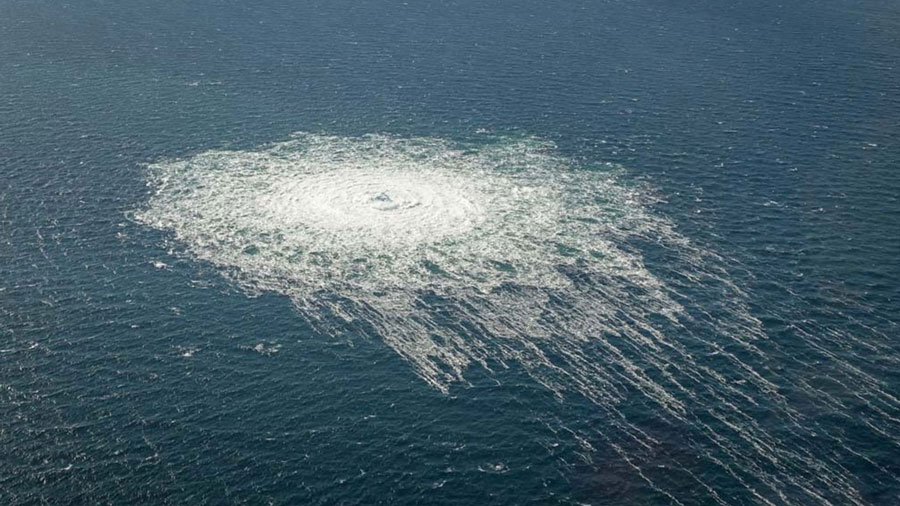

Ukrainian citizen Serhii Kuznetsov denied charges related to the 2022 Nord Stream pipeline explosions during a court hearing in Bologna on Friday and refused consent for extradition to Germany.
“He was in Ukraine at the time of the blasts,” according to Italian news agency ANSA, which reported that Kuznetsov made the statement while displaying a three-finger trident gesture representing Ukrainian national identity.
The 49-year-old suspect was arrested on the evening of 21 August at a farm holiday resort in San Clemente, near Rimini, on a European arrest warrant issued by German federal authorities. He faces charges including joint commission of an explosion using explosives, anti-constitutional sabotage, and destruction of buildings.
Italian police detained Kuznetsov while he was vacationing with his family. German investigators suspect he belonged to a group that destroyed the Nord Stream pipelines in September 2022 but was not among the divers who planted the explosives.
The Bologna court hearing was adjourned until early afternoon after Kuznetsov requested a Ukrainian or Russian interpreter. “The arrested man said he wasn’t fluent in English and requested a Ukrainian or Russian translator,” ANSA reported.
Deputy Prosecutor Licia Scagliarini granted German judicial authorities’ request for the suspect’s surrender, though Kuznetsov told the court he does not consent to being handed over to Germany.
According to German prosecutors, Kuznetsov served a coordinating function aboard the sailing yacht “Andromeda” during the operation. The yacht was allegedly rented through intermediaries from a German company using forged documents.
German media previously identified Kuznetsov as a former Security Service of Ukraine employee and retired captain in the Ukrainian Armed Forces. This marks the second arrest warrant in the case after Ukrainian citizen Volodymyr Z. managed to leave Poland for Ukraine before detention in July.
The Wall Street Journal previously reported that Ukrainian President Volodymyr Zelenskyy initially approved the pipeline operation but later ordered its cancellation after Dutch military intelligence informed the CIA, which then alerted Germany. According to WSJ sources, General Valeriy Zaluzhnyi ignored Zelenskyy’s order to halt the operation.
German investigators have been examining the explosions since 2022, initially suspecting Russian involvement before tracing evidence to Ukraine. Federal Police and Federal Prosecutor investigators eventually traced the sailing yacht and uncovered connections to Ukrainian operatives.
Security circles indicate uncertainty regarding when Kuznetsov will be extradited to Germany, with the validation of his arrest and pre-trial detention request under discussion in Bologna.
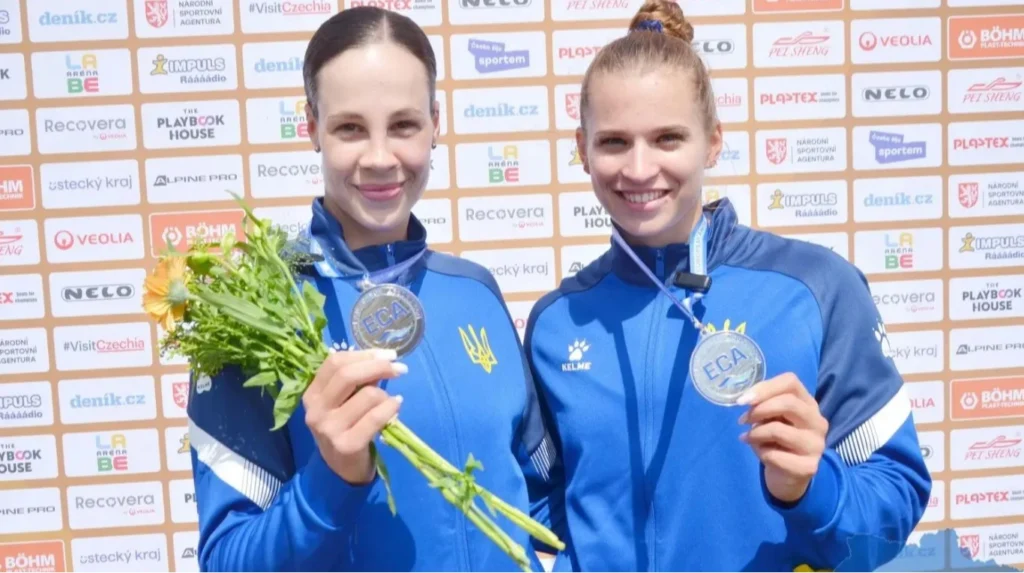

Ukrainian paddlers Liudmyla Luzan and Iryna Fedoriv captured Ukraine’s first gold medal at the 2025 World Canoe Sprint Championships in Milan, defeating Canadian duo Zoë Wojcik and Katie Vincent in the women’s canoe doubles 500-meter final.
The victory marks a significant achievement for both athletes at the championships running from 20-24 August in Italy, according to Ukrainska Pravda Sports,
Spanish paddlers Angeles Moreno and Victoria Yarchevska claimed bronze in the event. The result represents a reversal of fortunes from the European Championships in June, where Luzan and Fedoriv finished second behind the Spanish pair who took gold in that competition.
For Luzan, this victory adds a fifth world championship gold medal to her career collection. Fedoriv secured her first world championship medal at this level of competition.
The Ukrainian success comes at the midpoint of the Milan championships, with competition continuing through Saturday at the Idroscalo venue. The championships feature both traditional canoe sprint and paracanoe events running concurrently.
The victory builds on the pair’s silver medal performance at the 2025 European Canoe Sprint Championships in Racice, Czech Republic, where they competed in the 200-meter canoe doubles event in June.
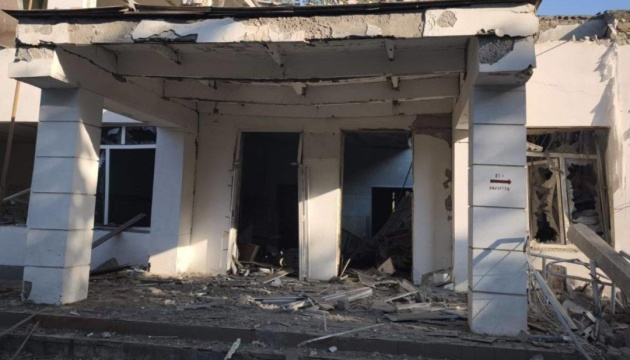



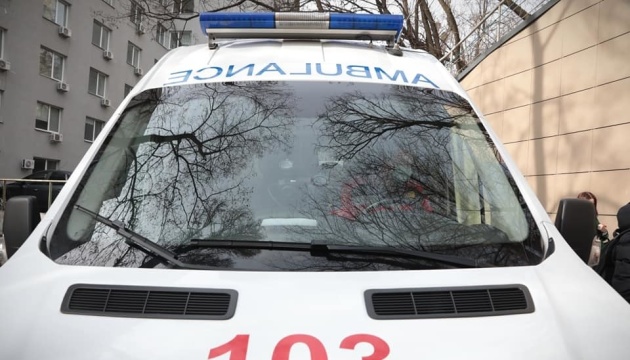




Fire Point, the producers of Ukraine’s deadly new ‘Flamingo’ missile, says it will be the Kyiv military’s fastest

© AP
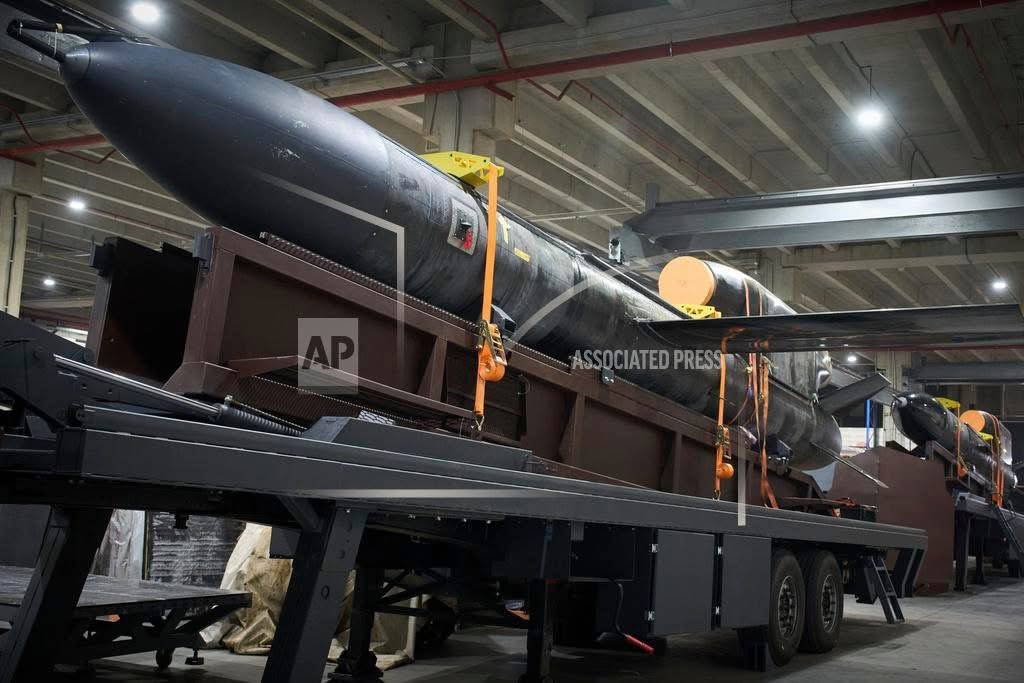

Colonel Markus Reisner, head of the Officer Training Institute at the Theresian Military Academy, says that over the past three and a half years, the European defense industry has produced nothing comparable to Ukraine’s FP-5 “Flamingo” cruise missile, UkrInform reports.
The Flamingo missile can carry a warhead weighing up to 1,150 kg over distances of up to 3,000 km. Ukrainian President Volodymyr Zelenskyy has confirmed that tests have been successful and that mass production will begin in January–February. He noted that it is currently Ukraine’s “most successful missile we have so far.”
Reisner emphasizes that for true effectiveness, the missile must be equipped with electronic countermeasure systems and decoys to bypass Russian air defense systems. Its maximum speed is 950 km/h, the cruising speed is 850–900 km/h, and the wingspan is 6 meters.
At the same time, it should be deployed alongside massive FP-1 drone strikes, which help penetrate Russian air defenses.
Mass production of Ukraine’s new FP-5 Flamingo missiles — reportedly with a 3,000 km range and a 1,000 kg warhead.
— Euromaidan Press (@EuromaidanPress) August 21, 2025Channel5UA pic.twitter.com/lclbyN0NZJ
Ukraine plans to produce 3,000 FP-1 drones per month, roughly 100 units per day, matching Russia’s daily output of Geran-2 drones. Due to its lightweight, low-cost design, each FP-1 costs €50–60k, which is relatively cheap.
Support our media in wartime your help fuels every storyAccording to Reisner, Ukraine is signaling its readiness to seize the initiative ahead of potential new rounds of negotiations.
“The message to Russia is clear: we will soon deliver massive strikes deep inside Russian territory,” the expert adds.
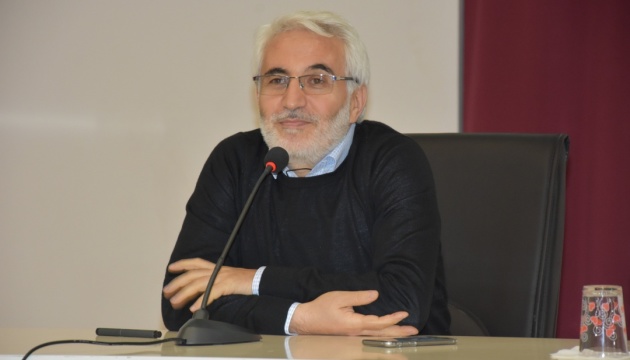

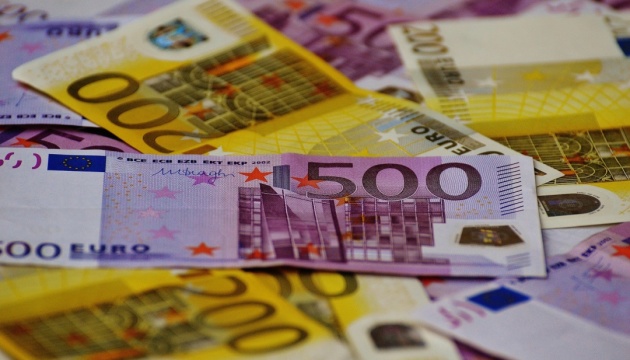

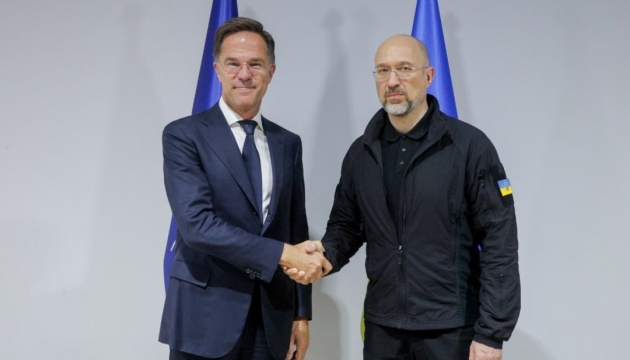

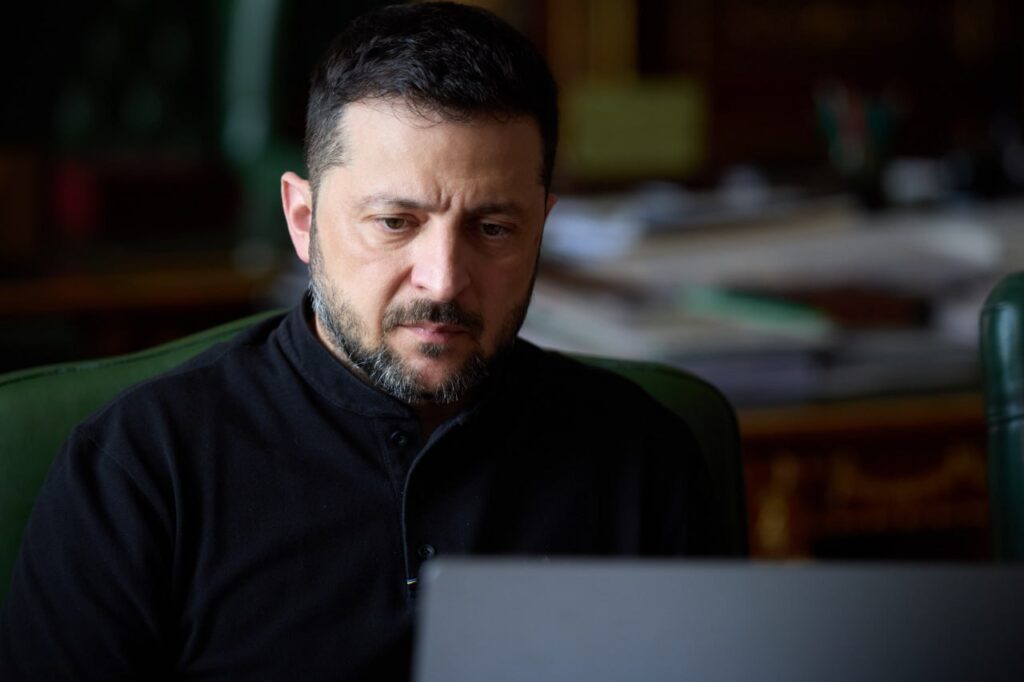

Ukrainian President Volodymyr Zelenskyy said during a joint press conference with NATO Secretary General Mark Rutte on 22 August that Russia is actively blocking efforts to organize a trilateral summit with the United States.
President said, according to Ukrinform, that Ukraine, unlike Russia, is not afraid of any meetings with leaders. “We are ready to work productively, maximally.”
The Ukrainian president emphasized the need for increased pressure on Moscow through diplomacy and strong sanctions.
Zelenskyy expressed hope that “partners will help ensure at least a minimal productive position from the Russian side,” adding that “everything must be done so that Russia cannot continue to hide from the meeting.”
The president said that he sees strong signals from the United States, Europe, and other countries within the coalition that want to help and are ready to assist.
The comments come after US President Donald Trump announced preparations for organizing a meeting between Ukrainian and Russian leaders following his conversation with Kremlin head Putin. Russian Foreign Minister Sergey Lavrov claimed that Russia does not reject any formats of work regarding Ukrainian settlement.
According to previous statements, Trump wants Zelenskyy and Putin to meet bilaterally first, with plans for a trilateral meeting involving the US president to follow. Trump has said that the Ukrainian president and the Kremlin ruler are currently “in the process” of organizing a bilateral meeting.


“Thousands of killer drones that will hunt people around the clock are no longer a matter of decades. It is a matter of literally months. I understand that this sounds like a fantastic horror movie. But in my opinion, this is our reality, coming as soon as next year, in 2026,” writes Maria Berlinska, a Ukrainian human rights activist and founder of the Victory Drones program.
On 17 July 2025, the UN Human Rights Monitoring Mission in Ukraine published a report titled “Deadly Drones: Civilians Under Threat from Short-Range Drones in Frontline Areas of Ukraine.”
Just a week before that, on 9 July 2025, a Russian drone killed a one-year-old boy, Dmytro, in a targeted attack on the village of Pravdyne, Kherson Oblast.
Photos of this crime went around the world, making it onto the cover of the New York Post.

“Moscow is turning Kherson into a ‘human safari zone,'” the publication reported.
Human safari is the chilling definition of life in Kherson, coined by the city residents themselves. American writer and journalist Zarina Zabrisky was the first to report on the human safari in international media in July 2024.
While producing numerous reports, commentaries, and interviews, she worked on a book about the Kherson Oblast during Russia’s full-scale invasion of Ukraine, as well as a documentary film to open the eyes of global audiences to a reality more cruel than dystopia.
Filming lasted from September 2023 to June 2025. The documentary Kherson: Human Safari is now available for free viewing to raise awareness about this unprecedented form of warfare.
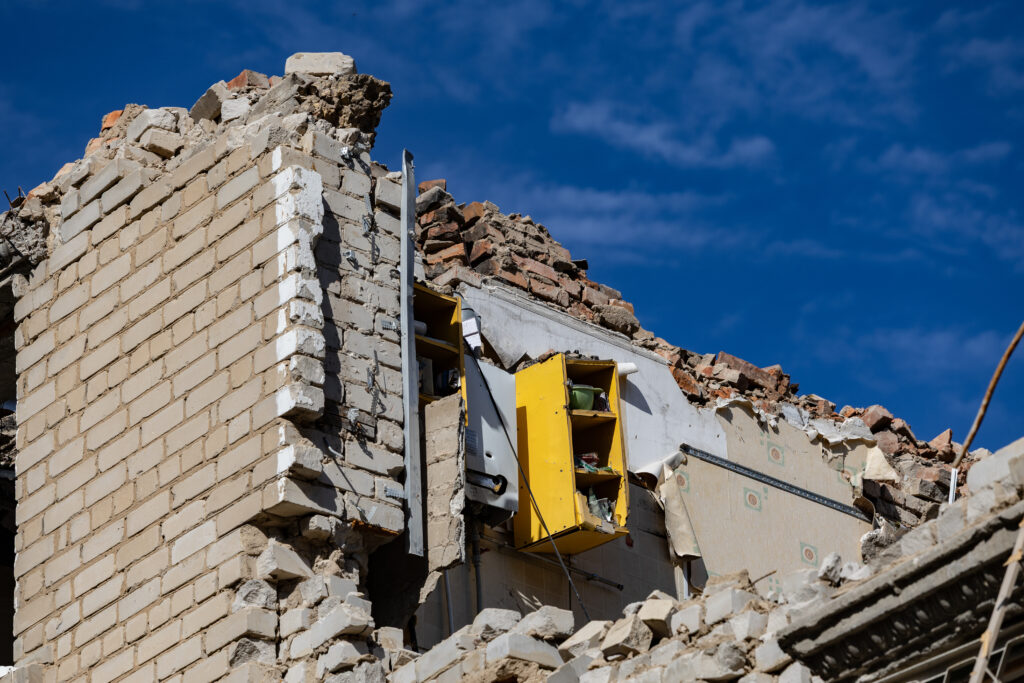
Kherson became the only Ukrainian regional center that Moscow managed to capture since 2022. The Russian occupation lasted almost nine months. The liberated city and its residents quickly became the object of furious revenge by the invaders, forced to retreat to the left, eastern bank of the Dnipro River.
Fleeing from Kherson, Russians blew up the infrastructure, leaving residents without electricity. Later, they began shelling with artillery, missiles, and guided bombs.
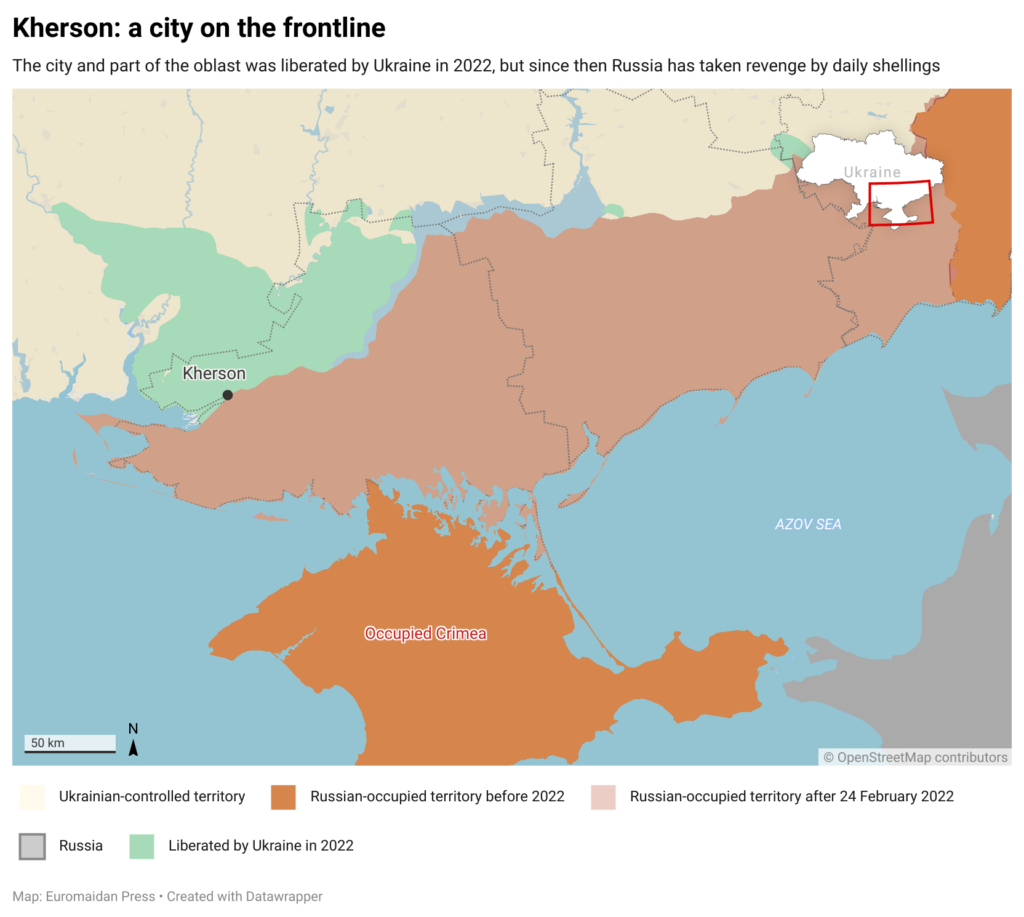
“Every shot we hear from the left bank brings grief and trouble,” says one of the central characters of the film Kherson: Human Safari.
Zarina Zabrisky arrived in Kherson with other war correspondents on the third day after the de-occupation.
“This first visit to the city turned out to be the most memorable in my life. Maybe even the most memorable day in my life,” Zabrisky recalls in an excerpt in Chronicles of War: February 2022 — February 2023, published by the Ukrainian publishing house Folio. The writer was struck by the joy of Kherson residents who celebrated freedom,
“I have never seen so many ways of wearing national flags and outfits in national colors, and I, mind you, am from America, where this is a national sport.”
It was then that Zabrisky gathered the first testimonies about the occupation from Kherson residents: torture chambers, intimidation, child abduction, the farce of the referendum on joining Russia, mass burnings of corpses in mobile crematoriums and in landfills, the smell of charred human skin and hair.
“I couldn’t look up. I walked with my head down all the time,” says the central character, recalling the months of Russian rule.

Among those who agreed to a conversation on camera was artist and writer Alyona Maliarenko. She described the experience of Kherson residents in her book Giselle and the World, or How to Survive the Occupation. She wrote about the state of the city after the Russians left:
“Each district suffered in its own way. The multi-story residential neighborhood of Tavryk froze without electricity. There was no gas and people cooked food on fires in the yards. Ostriv and the Skhidny neighborhood shuddered from hourly shelling.”
“In Richport, people were constantly moving like ants near the piers, collecting water from the Dnipro and transporting it around the city, until Russian snipers started shooting at them like at targets in a shooting gallery.”
“In the center of the city, Starlink Internet was distributed in the squares. Hot food points, and later registration points for humanitarian and financial aid, medicine, clothes and stoves multiplied. People were constantly milling around there until Russian surveillance drones started circling above them, attacking the crowds.”
In the film Kherson: Human Safari, Maliarenko, telling the story of the flood after the Russians blew up the Kakhovka hydroelectric power station, mentions her aquarium with goldfish and guppies.
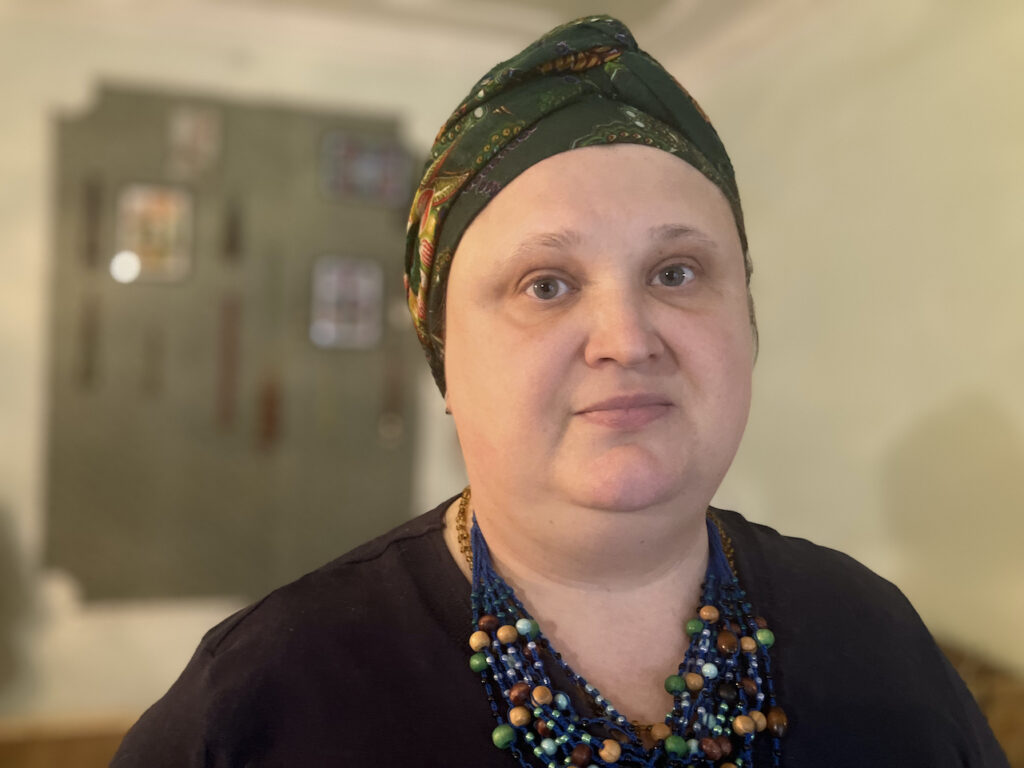
“My house sank. The only ones who were not immediately physically injured were the fish. They swam around my apartment for a week, and then they swam through the windows into the Dnipro.”
The artist’s sense of humor saves her in tragic situations. Humor and self-irony occupy a prominent place in Ukrainian culture and identity as a means of resisting imperial pressure, devaluation, prohibitions, and repression. The same goes for a passion for well-being and beauty.
Alyona Maliarenko is engaged in Samchykivskyi painting, a decorative style that imitates the folk tradition of Volynia. The artist creates virtuoso works and prints them on silk scarves. One of them, called Pisces. Sunny Pool, is dedicated to the fish experience during the flood.
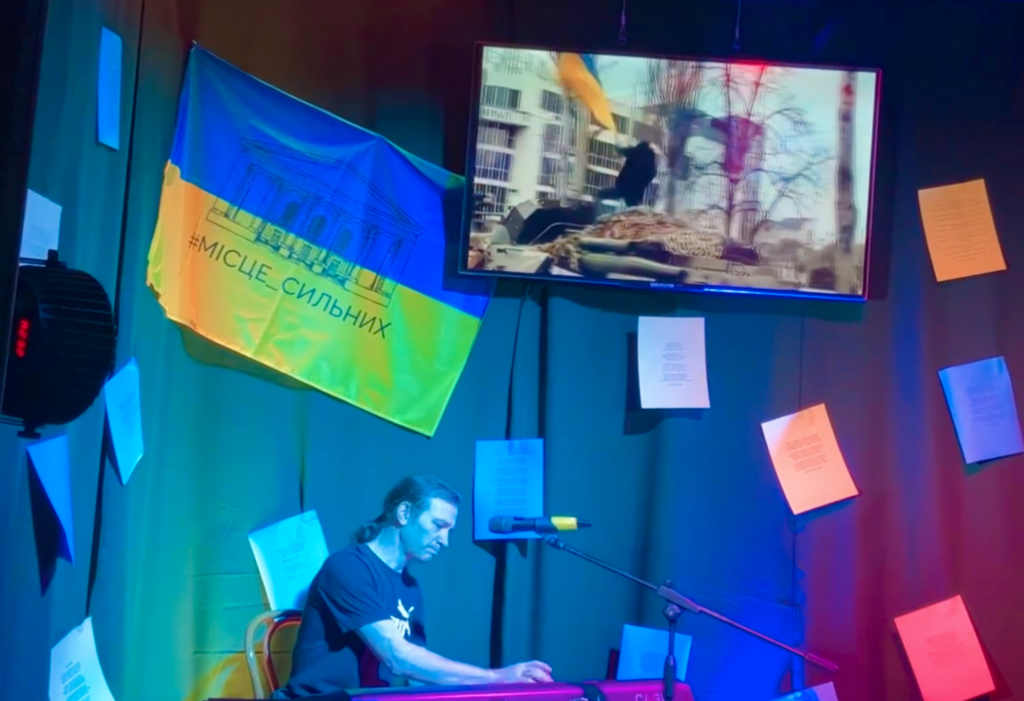
Another central character of the film is the composer Borys Hoina. During the occupation, he became a partisan and gathered information, riding around the city on a bicycle and filming Russian military equipment with a phone in his pocket. Back home, he wrote music on his electric piano, putting his experiences into his compositions.
Zabrisky heard him playing this music at an art event in a shelter in Kherson. Under Russian missile terror, the social and cultural life of Kherson, like in Kharkiv and other frontline cities of Ukraine, moved underground.
Lectures and master classes, concerts and performances are held in shelters. In Borys Hoina’s work, Zabrisky found the most harmonious music for the film.
The Director of Photography, Oleksandr Andriushchenko, is also a native of Kherson, a well-known photographer in the city.
Respect for the real is inherent in Zabrisky’s documentary, as behind it is a sincere and personal interest in truthful details. The writer and producer came to Ukraine from San Francisco in search of her roots in 2021. She found a building in Uman, where her Jewish great-grandfather and great-grandmother on her paternal side once owned a business.
After Zabrisky’s grandfather was born, they moved to Odesa, where they were killed in the Holocaust. Yet, some relatives survived, and Zabrisky spent summer vacations in Odesa as a child.
“I recently learned that my Ukrainian maternal great-grandmother was born in Pryluky, Chernihiv Oblast,” the filmmaker shared.
Zabrisky perceived the escalation of Russia’s war against Ukraine in 2022 as an attack on her own history. As soon as she could, she started to work as a war correspondent, reporting from the land of her ancestors.
For a while, she even kept her exact location a secret from her loved ones in the United States. To keep them from worrying about her safety, she answered about her whereabouts without sharing details, “In Europe.”
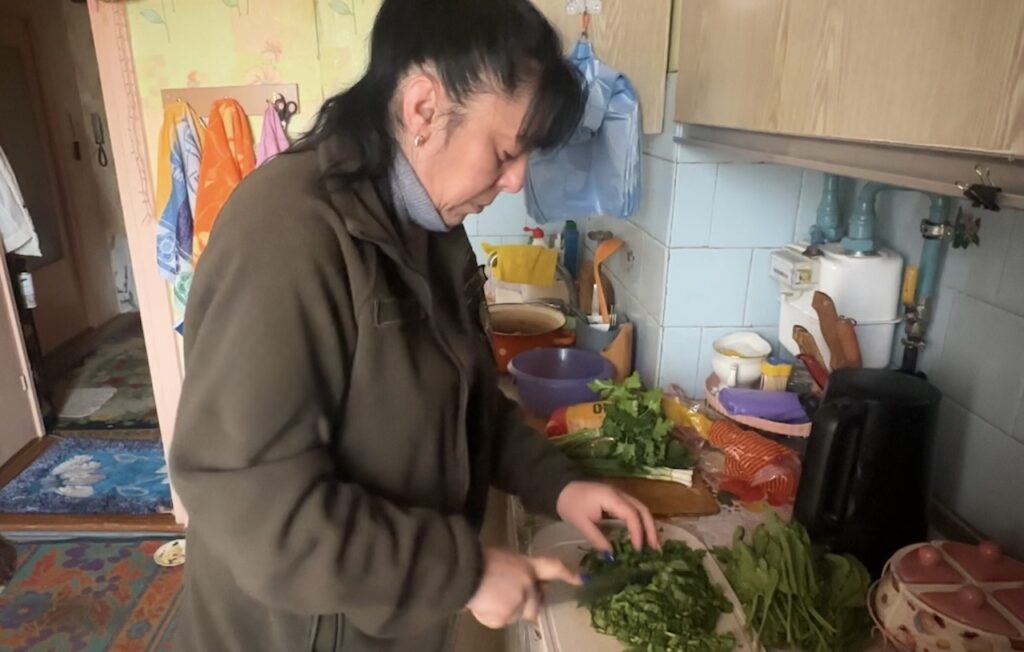
In 72 minutes, the drama of human trials, hopes, resistance, and dignity unfolds before the audience of Kherson: Human Safari. The chapters correspond to the events:
But the main arc of the narrative is not in chronology. It is in the careful, meticulous recording of what the Kherson residents share with the author.
Endurance and solidarity, despair and pain, heroism, hope, and creativity. Talking about loved ones killed by the Russians, a servicewoman cooks borscht. For a Ukrainian woman, making borscht is always an art. Each one is proud of her family recipe.
The immediate threat of death turns this everyday act into a sacred ritual, an affirmation of life despite everything.
Zabrisky does not shy away from harsh shots and evidence. She includes drone footage that captures the hunt for civilians near shops and in their cars. Yet, the horror is not the focus here. The tone of the film is far from sensational because it tells the story about the everyday life of Kherson.
This realization causes a certain resistance in a viewer who is presented with a degree of dehumanization not depicted in the most brutal dystopias. A lot of science fiction, from The Hunger Games to Squid Game, is dedicated to human bloodthirstiness, while a lot explores a war of machines against people or an alien invasion.
But people killing helpless, unarmed people as if it were a video game is a new and shameful idea. Human Safari dehumanizes those who play such a game.
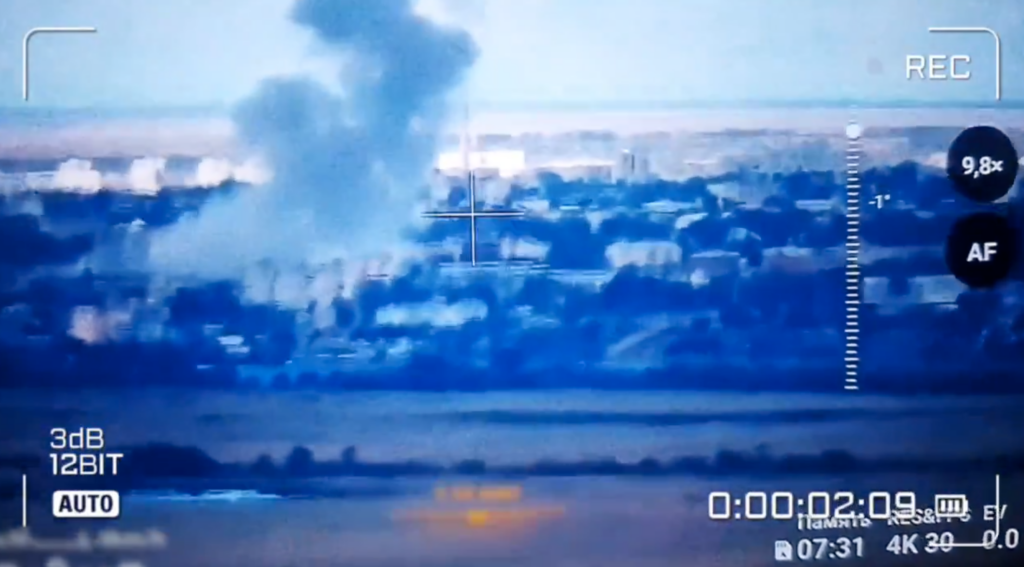
In his 1962 work The Gutenberg Galaxy, Marshall McLuhan argued that the invention of the printing press fundamentally reshaped human consciousness, ushering in an era of linear thinking and rational discourse. The decline of the Gutenberg Galaxy, to which writer Zarina Zabrisky remains loyal, is unfolding in ways even more dire than McLuhan once predicted.
The revival he foresaw of primal emotional outbursts and the beating of drums is today amplified by the informational carelessness of millions of social media users. And to that has now been added the new fine motor skills of joystick users.
The latest technologies, combined with the Russian cultural tradition of the law of force and the devaluation of human life, have opened the door to an unprecedented form of inhumanity—human safari.
“When civilization is in decline, and your city is in ruins – what do you do to survive… and remain human?” asks Zarina Zabrisky. In her film, the answer is the words, reactions, and acts of Kherson residents. Yet, this question concerns everyone today.


The European Union transferred €4.05 billion ($4.7 bn) to Ukraine before the country’s 34th Independence Day, the European Commission announced on 22 August.
The package includes €3.05 billion ($3.6 bn) through the Ukraine Facility mechanism and €1 billion ($1.2 bn) in exceptional macro-financial assistance, according to the Commission’s press service.
“Ahead of Ukraine’s 34th anniversary of independence on 24 August, the EU delivers another strong signal of unwavering support by disbursing €4.05 billion ($4.7 bn) to the country,“ the Commission said.
“As Ukraine celebrates its 34th Independence Day, the EU sends a clear message: our solidarity with Ukraine is unwavering. Today’s disbursement of over €4 billion demonstrates our staunch commitment,” European Commission President Ursula von der Leyen said.
Von der Leyen added that the funding “underlines our commitment not only to Ukraine’s recovery, but to its future as a sovereign and democratic country. Because when Ukraine is strong, Europe is stronger too.”
The €3.05 billion ($3.6 bn) represents the fourth regular payment under the Ukraine Facility program. However, this tranche is more than €1 billion ($1.2 bn) smaller than originally planned because Kyiv has not implemented all reforms promised to the EU.
Despite the reduction, the European Commission noted the payment reflects Ukraine’s progress on EU accession reforms, particularly “restoring the independence” of the National Anti-Corruption Bureau and the Specialized Anti-Corruption Prosecutor’s Office, which the Verkhovna Rada approved on 31 July.
“Safeguarding the autonomy of these two institutions is a cornerstone of Ukraine’s anti-corruption architecture and of its European path,” the Commission emphasized.
The Commission also transferred the seventh installment of its exceptional macro-financial loan (MFA) worth €1 billion ($1.2 bn) to Ukraine.
Since Russia’s full-scale invasion began in February 2022, the EU and its member states have mobilized €168.9 billion ($198 bn) in humanitarian, financial and military aid for Ukraine and its citizens, reports European Pravda.
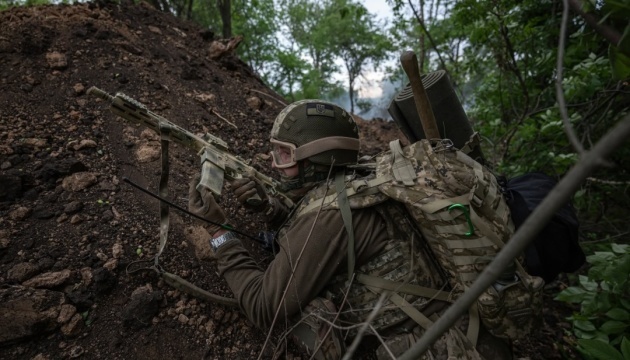



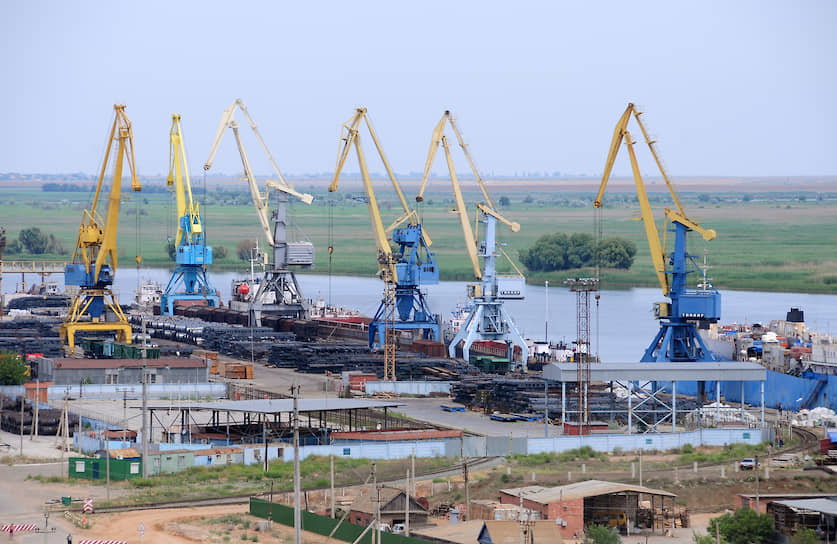

A cargo ship flying the Russian flag, Port Olya 4, transporting ammunition and drone equipment from Iran, partially sank after a Ukrainian drone strike on 14 August, the UK Ministry of Defense reports, citing satellite imagery.
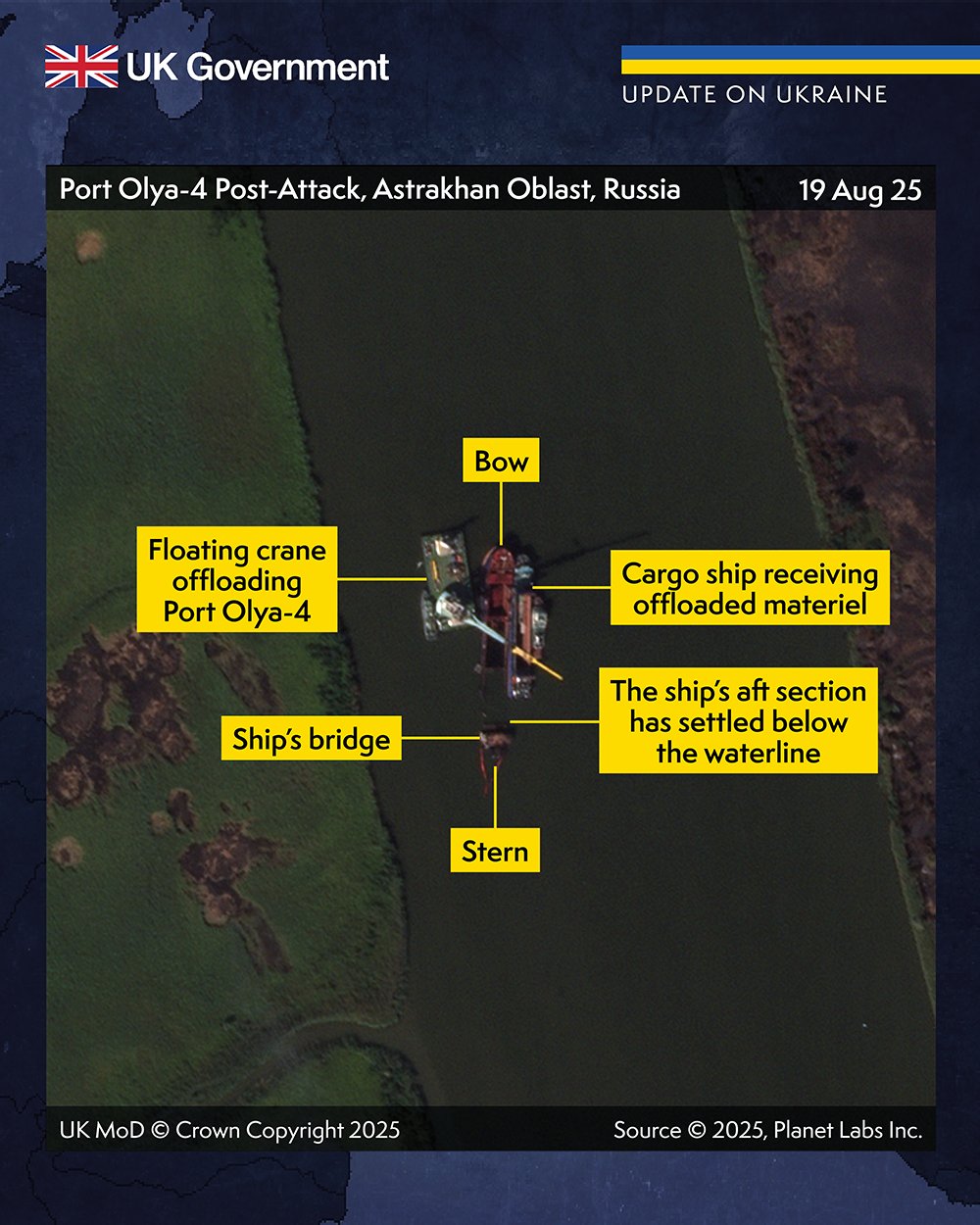
The targeted vessel, identified as Port Olya 4, was reportedly loaded with Shahed-type drone components and ammunition.
Analysts note that the successful attack on a vessel located approximately 640 km from Ukraine demonstrates the effectiveness of regular deep-drone strikes carried out by Ukrainian forces into Russian territory.
Russian air defenses face difficulties in protecting both military and industrial targets from Ukrainian drones.
According to British intelligence, Iran has supplied Russia with artillery shells, ballistic missiles, and combat drones, as well as supported domestic UAV production. However, in 2025, Russia’s reliance on Iranian assistance likely decreased due to the growth of its own drone production.
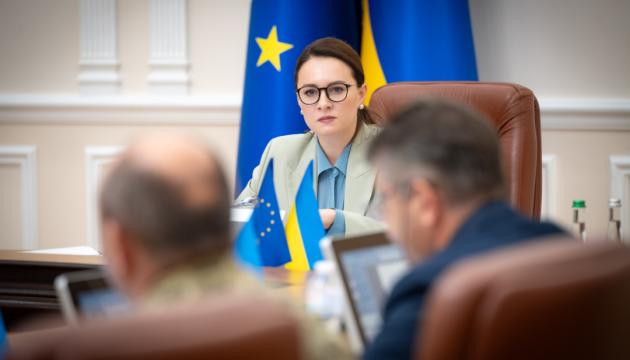

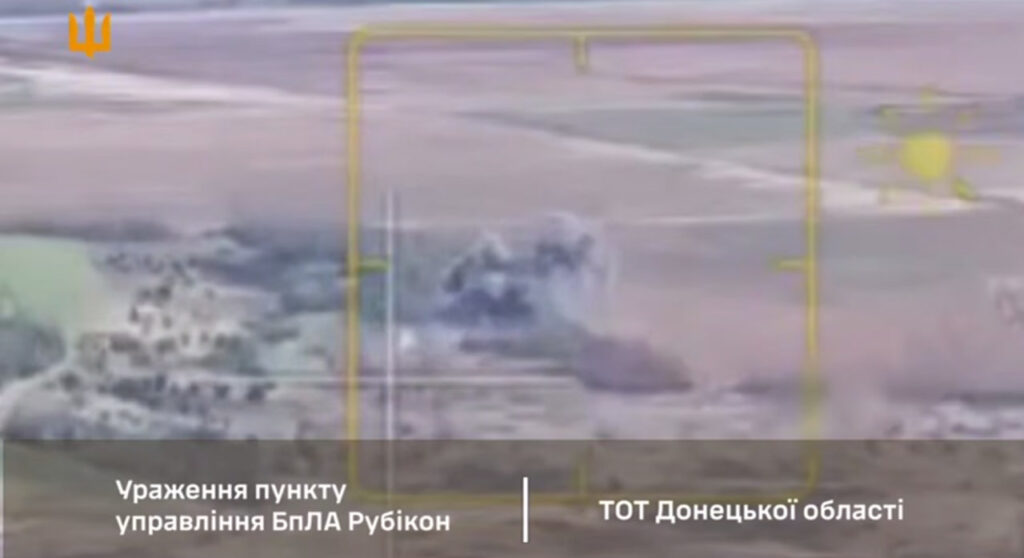

Ukrainian forces destroy the “brains” of Russia’s elite drone unit Rubicon in Donetsk Oblast. Kyiv troops delivered a precise strike on the unmanned aerial command post of the unit, destroying a large ammunition depot, the General Staff of the Armed Forces reports.
Ukrainian forces struck a number of important Russian targets in Donetsk Oblast
A command post of the Russian elite “Rubikon” UAV unit and a large ammunition depot were targeted
General Staff pic.twitter.com/6lsE53FJ71
— Euromaidan Press (@EuromaidanPress) August 22, 2025
The Rubicon unit was created only in August 2024, but quickly became one of Russia’s most dangerous high-tech formations. It brought together the most skilled personnel, effective command, and virtually unlimited funding.
Russia has been deploying Rubicon with several hundred to several thousand fighters, aiming to expand its operations across the entire frontline, according to Army Inform.
The commander of the Azov Brigade’s unmanned systems battalion, call sign Bud, told Radio NV:
“They caused us obvious problems, primarily with logistics. I think when they entered this direction, their clear mission was to hit our supply lines as much as possible.”
Since Rubicon’s appearance, the situation for Ukrainian units has become more complicated, as the Russians actively target transport and supply routes.
Experts note that the loss of Rubicon’s command post could significantly slow the development of this Russian project.
“The combat work of missile troops and artillery continues constantly,” the General Staff emphasized.
Earlier, Forbes reported that Rubicon significantly weakened Ukraine’s drone advantage in Russia’s Kursk Oblast by inflicting serious losses on logistics and destroying equipment.
Additionally, Rubicon employs advanced radio-control systems capable of bypassing Ukrainian electronic warfare defenses. As a result, Ukrainian logistics suffered heavy damage from drone attacks, with hundreds of Ukrainian vehicles destroyed, including supply trucks, M2 Bradleys, and MaxxPro armored vehicles.


On the first day of operation of the new Ukrainian mobile app, the UNITED24 App, users from 45 countries donated 1 million hryvnias, or $24,263, to support Kyiv’s top drone units. Minister of Digital Transformation Mykhailo Fedorov has revealed that the largest contributions came from the US, Ukraine, Germany, the UK, and France.
The UNITED24 App allows donors to support Ukrainian soldiers directly. It is available for download in the App Store and Google Play.
According to Fedorov, donors from any country can, in just a few clicks, contribute to a specific unit, track in real time how their donations are used, maintain direct contact with the Drone Army units, learn about their needs, and receive thanks directly from the military.
The app also features gamification elements for the donors to feel like part of their chosen units.
Through the app, users can already donate directly to five units:
Users can choose a Ukrainian or English interface, make direct donations, personalize their profile with a call sign, and track donor statistics and rankings. The app also offers content from the frontlines: reports, videos, and soldiers’ stories.
UNITED24 has been operating since 2022 and has already raised over $1.8 billion for Ukraine’s needs.
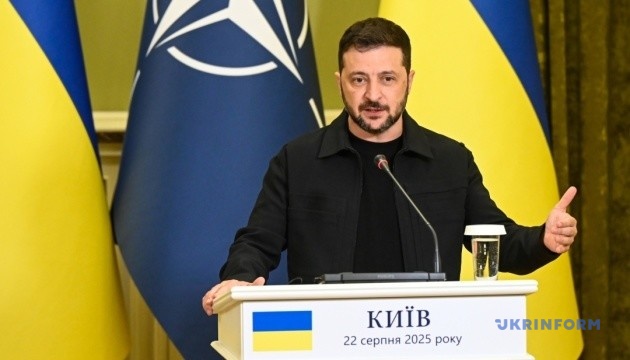

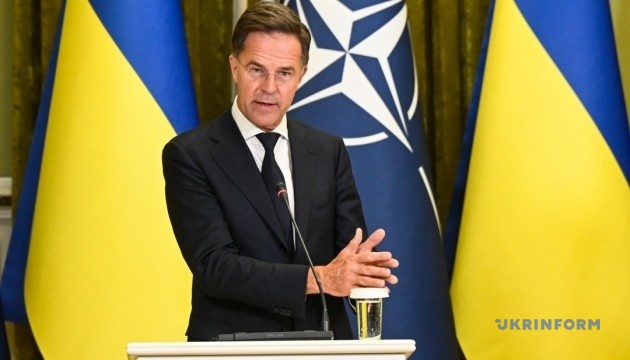



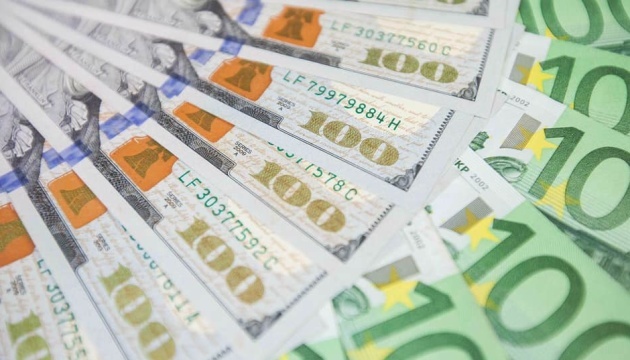

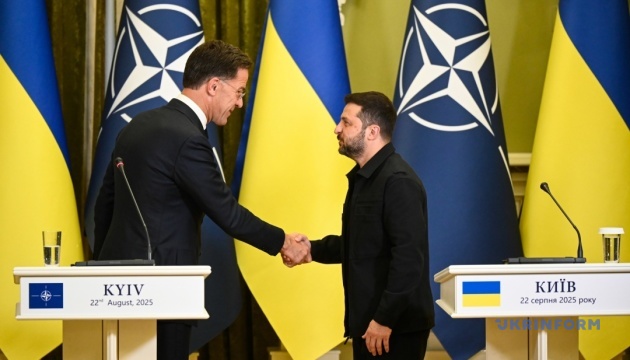

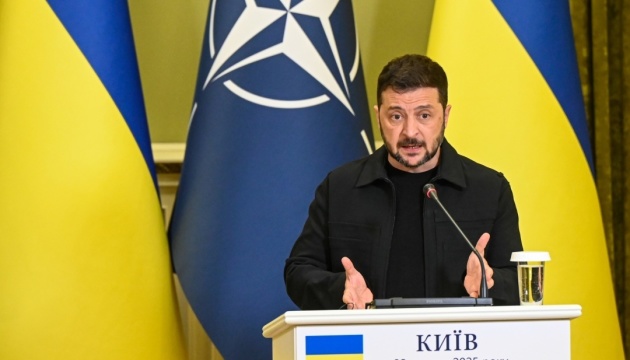

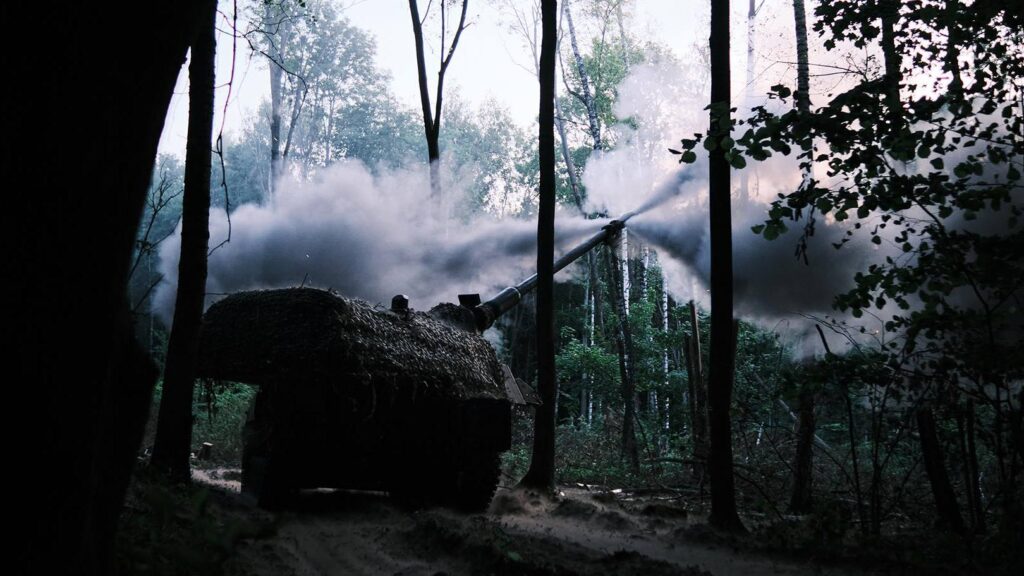

After three weeks of hard fighting, the Ukrainian 1st Azov Corps and adjacent units have squeezed and cut up the 15-km salient that Russian infiltrators carved out of Ukrainian territory near the the village of Dobropillya, northeast of the fortress town of Pokrovsk in eastern Ukraine’s Donetsk Oblast.
But Russian reinforcements are rolling in, opening a new—and unpredictable—phase in the battle for the Dobropillya salient. “The enemy’s penetration near Dobropillya remains a dynamic section on the front line where neither side can seize the initiative,” the Ukrainian Center for Defense Strategies noted.
It’s more apparent than ever that the Russian penetration toward Dobropillya, which sits astride one of two main supply roads into besieged Pokrovsk, was bigger and more dangerous than some analysts initially concluded.
“Let’s start by describing what this absolutely is not: a breakthrough,” US analyst Andrew Perpetua asserted on Aug. 12. In fact, it was a breakthrough, albeit one that mostly moved at a walking pace.
Over a period of several months, the Russian 51st Combined Arms Army redeployed almost all of its brigades northeast of Pokrovsk, including the 1st, 5th, 9th, 110th and 132nd Motor Rifle Brigades. While the 132nd Motor Rifle Brigade slipped past empty Ukrainian trenches and marched on Dobropillya, the other four brigades attacked toward Rodynsky, at the bottom of the eventual salient.
Support our media in wartime your help fuels every story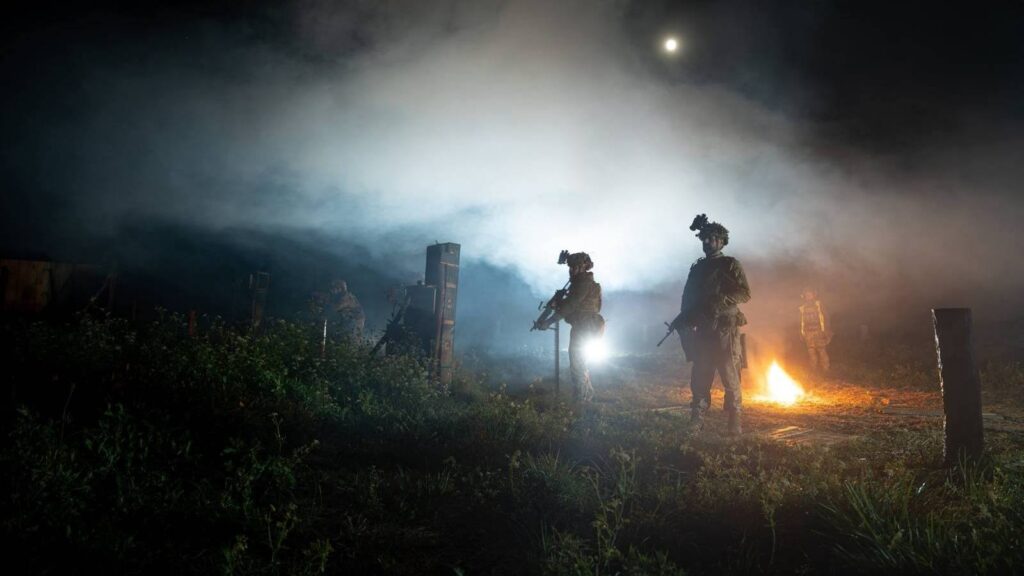
The scale of the Ukrainian response, and the resulting spike in Russian losses, underscored the seriousness of the situation for Kyiv. If it had captured Dobropillya, the 132nd Motor Rifle Brigade would’ve cut the T0515 road, leaving the Ukrainian garrison in Pokrovsk dependent on just one other road threading into the town from the northwest—a road that itself is in danger of being overrun.
In addition to the 1st Azov Corps, Ukraine redeployed elements from the 79th and 82nd Air Assault Brigades, 1st and 425th Assault Regiments, 25th Assault Battalion, 2nd Battalion of the 92nd Assault Brigade, 32nd and 93rd Mechanized Brigades, 38th Marine Brigade, 14th National Guard Brigade and the Birds of Magyar drone brigade.
It’s a powerful Ukrainian force. And in the first few weeks of its counterattack, it enjoyed a decisive advantage in troops, tanks, armed ground robots and drones. The 132nd Motor Rifle Brigade’s troopers had marched toward Dobropillya “only with weapons in their hands,” Ukrainian Pres. Volodymyr Zelenskyy said.
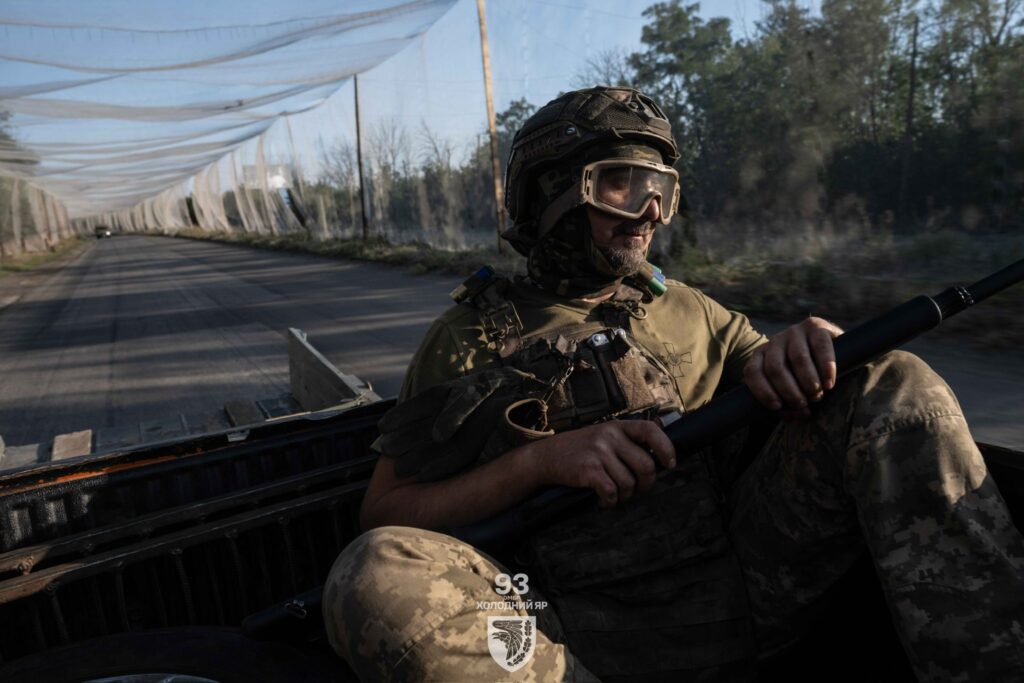
Between Aug. 4 and 20, the Ukrainian corps killed, wounded or captured nearly 1,600 Russians, according to the the Ukrainian general staff in Kyiv. That’s nearly the entire front-line strength of the 132nd Motor Rifle Brigade.
But a few Russian survivors are still clinging to positions in Zolotyi Kolodyaz, at the top of the salient, and now the Russian 51st Combined Arms Army is deploying additional forces at the bottom of the salient.
Despite heavy losses and the near-destruction of its initial penetration toward Dobropillya, the 51st Combined Arms Army isn’t defeated—and probably won’t give up. The army “will try to advance as deeply as possible to Dobropillya,” CDS predicted.
And if it manages to finally capture the village, CDS predicted the 51st Combined Arms Army could “sharply worsen the prospects for the defense of not only Dobropillya and Pokrovsk, but also Druzhkivka and Kostyantynivka” on the other side of the salient.
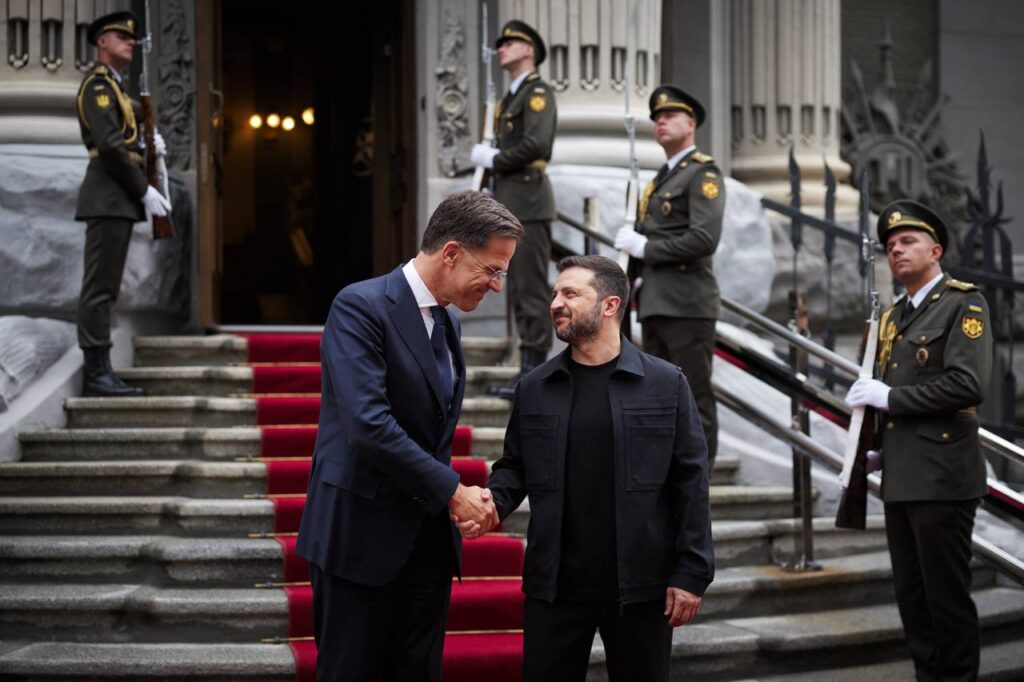

The NATO Secretary General Mark Rutte has revealed that Western security guarantees for Kyiv have two layers: a peaceful settlement with the strengthening of Ukraine’s Armed Forces, and guarantees from the US and Europe, which should deter the Kremlin from renewed aggression, Ukraine’s Presidential Office reports.
He also underlined that “the situation with the Budapest Memorandum will not be repeated.”
The Budapest Memorandum, signed in 1994, provided security assurances to Ukraine by Russia, the US, and the UK in exchange for Kyiv giving up its nuclear weapons. However, the memorandum has failed to guarantee the country’s security and has not worked.
On 22 August, NATO Secretary General Mark Rutte arrived in Kyiv on an unannounced visit and held talks with Ukrainian President Volodymyr Zelenskyy.
He said he is glad to be in Kyiv after an “important meeting in Washington.” Rutte emphasized that during the last 3.5 years of Russia’s war, Ukraine has remained strong, adding that “your NATO partners and friends remain with you” and that their support is unwavering and “will continue.”
Rutte recalled that Alliance members are not only supplying weapons but also investing in Ukraine’s defense industry. This both strengthens security and supports the economy, UNIAN writes.
“We are also cooperating through NSATU in Germany to ensure the Ukrainian army has everything it needs,” the NATO Secretary General noted.
NSATU is the NATO Security Assistance and Training for Ukraine, a NATO command that coordinates the provision of military equipment and training for Kyiv.
During the meeting, Zelensky announced that the new PURL program, which allows the purchase of US weapons with partner funds, has already collected $1.5 billion from European countries.
“The most important things are diplomacy, security guarantees, and weapons for our warriors. And we already have $1.5 billion from European countries,” the Zelenskyy stressed.
The President stated that he does not understand what kind of security guarantees could be given to Russia, since Moscow itself started the war.
“I don’t quite understand what guarantees an aggressor needs. The only trigger of this war is Russia itself,” Zelensky emphasized.
He noted that Ukraine’s partners want to ensure that the war does not repeat, but Russia’s aggression is the main problem. As an example, the Ukrainian leader pointed to the situation with air support: the available F-16s cannot fully guarantee air security. This issue depends on production capacity and financing.
Rutte, for his part, reminded that US President Donald Trump in Washington set the priority of showing Putin that the US is part of the security guarantees.
Earlier, Zelenskyy announced that Ukraine’s security guarantees are expected to be formalized on paper within the next 7–10 days. Speaking at a briefing in Washington, he said the document will include a US weapons package worth $90 billion.
At the same pace of weapons supply, this funding could last for 4.5 years of military support in the event of a new attack. The package may include aircraft, air defense systems, and other weaponry. He added that more details on the future agreements will emerge daily.
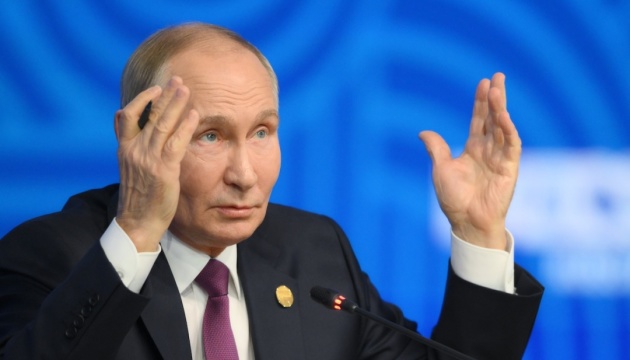

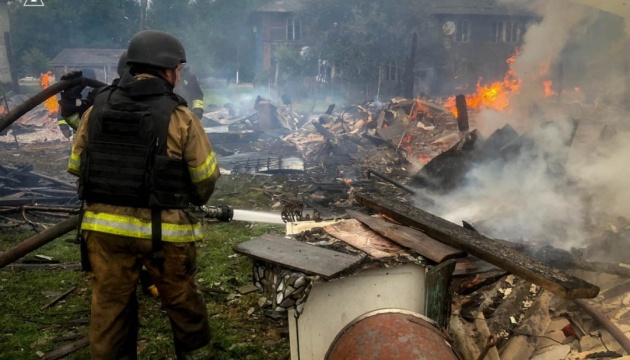

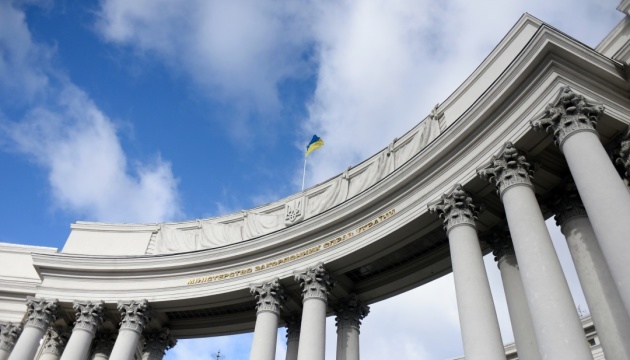

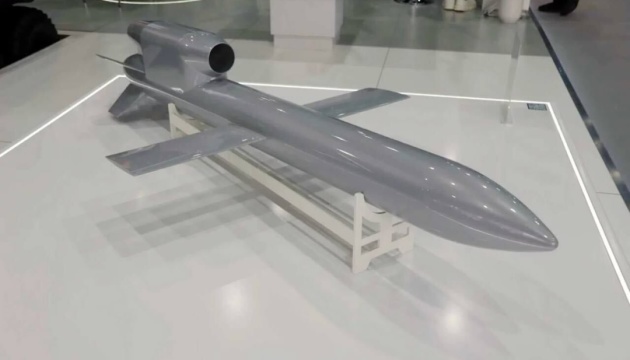


As the US president leaves Russia and Ukraine to sort a ceasefire among themselves, Sean O’Grady asks if this is Trump’s famously short attention span at play – or whether he is merely reluctant to be associated with near-certain failure

© AFP/Getty